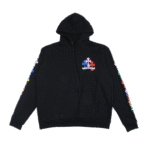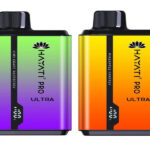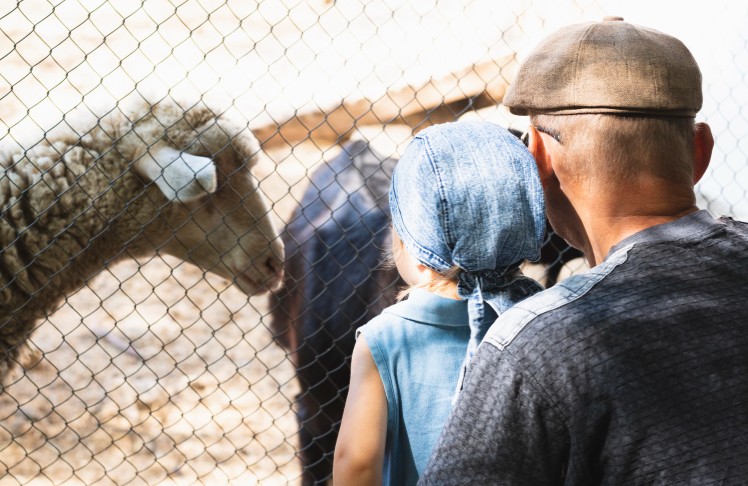As Eid al-Adha approaches, millions of Muslims around the world are preparing to fulfill one of the most meaningful acts of worship—qurbani, the ritual animal sacrifice that commemorates Prophet Ibrahim’s devotion to God. While this tradition has deep spiritual significance, its social impact is equally powerful. Through charitable qurbani donations, Muslims are helping feed, uplift, and empower some of the world’s most vulnerable communities.
This article explores how qurbani donations are organized, where they go, and the real-life impact they have on families facing poverty, food insecurity, and crisis. As the global demand for humanitarian assistance grows, qurbani continues to be a vital lifeline that brings hope and dignity to those who need it most.
The Meaning and Purpose of Qurbani
A Core Pillar of Eid al-Adha
Qurbani, or Udhiyah, is performed during the Islamic festival of Eid al-Adha, which in 2025 is expected to begin on the evening of June 8 and end by June 12, depending on moon sightings. The ritual sacrifice commemorates the story of Prophet Ibrahim (Abraham), who showed unwavering obedience to God when asked to sacrifice his son. At the last moment, God replaced the son with a ram, and this act of devotion became a symbolic tradition.
For Muslims who can afford it, offering a qurbani is a religious obligation. The meat is divided into three parts: one-third for the family, one-third for friends or relatives, and one-third for the poor and needy. In recent years, qurbani donations through charitable organizations have enabled Muslims to fulfill this obligation while supporting communities far beyond their own neighborhoods.
Why Qurbani Donations Matter
Fighting Global Hunger
One of the most immediate and visible benefits of qurbani donations is the delivery of fresh meat to food-insecure populations. In many parts of the world, meat is a luxury—often unaffordable and rarely consumed. For families in countries facing conflict, drought, displacement, or economic hardship, the meat from qurbani can provide vital protein and nutrition.
According to humanitarian organizations, qurbani meat distributions during Eid al-Adha will reach millions of people in regions such as Sub-Saharan Africa, South Asia, the Middle East, and refugee camps around the world. These donations help ensure that no one is left out of the blessings of Eid.
Supporting Widows, Orphans, and the Elderly
Qurbani donations also serve as targeted relief for vulnerable groups—widows, orphans, the elderly, and those with disabilities—who often fall through the cracks of regular aid programs. For many of these individuals, receiving a portion of qurbani meat during Eid al-Adha will be their only chance to enjoy a full, nutritious meal that includes meat.
Charities often prioritize these recipients, organizing door-to-door distributions or centralized community events that ensure fair and dignified access to food. In doing so, qurbani donations not only feed people but also restore a sense of inclusion and celebration.
How Qurbani Donations Are Distributed
Partnering with Local Communities
Effective qurbani programs are built on partnerships with local NGOs, mosques, and community leaders. These organizations are best positioned to assess needs, identify beneficiaries, and carry out the sacrifices in a culturally and religiously appropriate manner.
The animals used for qurbani are sourced locally whenever possible to support regional economies. Strict standards are maintained to ensure that animals are healthy, well-treated, and slaughtered in accordance with Islamic principles.
Once processed, the meat is packaged and delivered, often within 24 to 48 hours, to families who would otherwise go without. In some cases, recipients also receive additional staples such as rice, cooking oil, or hygiene items.
Digital and International Coordination
With the rise of online giving platforms, Muslims around the world can now donate their qurbani with a few clicks. For Eid al-Adha, charities are offering digital dashboards that let donors choose the country or region where their sacrifice will take place. Some even provide real-time updates, photos, or certificates of completion.
This global coordination ensures that meat is distributed strategically, based on urgent need and long-term impact. It also allows diaspora communities to stay connected to their faith and heritage, even when living far from their ancestral homelands.
Real-Life Impact: Stories from the Field
Somalia: Relief in the Face of Drought
In drought-stricken Somalia, qurbani donations have been a crucial source of nutrition. For families displaced by climate change and conflict, receiving meat during Eid means their children will eat a proper meal—something they may not have had in weeks. Local aid workers report that qurbani distributions bring not only food but also emotional relief and a sense of celebration to struggling households.
Bangladesh: Feeding Rohingya Refugees
In the refugee camps of Cox’s Bazar, Bangladesh, where over 900,000 Rohingya Muslims reside, qurbani donations provide rare and essential nourishment. For Eid al-Adha, international charities are preparing to deliver thousands of sacrificial animals to feed these displaced families, many of whom continue to face uncertain futures.
Beyond the Meal: Economic and Social Benefits
Boosting Local Livelihoods
Qurbani don’t just feed the poor—they also support the livelihoods of farmers, butchers, transporters, and volunteers involved in the process. For many rural workers, the Eid season is a time of increased income and opportunity. Charities that source animals locally help stimulate local markets, creating a positive economic ripple effect.
Fostering Community Solidarity
Eid al-Adha is a time for spiritual reflection, but it is also a deeply communal holiday. The act of giving qurbani fosters empathy, solidarity, and connection between donor and recipient, regardless of distance. In a world increasingly divided by borders and conflict, qurbani serves as a powerful reminder of shared humanity.
As Muslims prepare for Eid al-Adha, qurbani donations offer an opportunity to transform faith into action. Whether feeding a hungry child in Yemen, supporting a widow in Afghanistan, or lifting the spirits of refugees in Jordan, every donation matters.
Qurbani is more than a ritual—it’s a legacy of compassion. And in a time of global uncertainty, that compassion is needed more than ever.
- How Qurban Donations Help Vulnerable Communities Around the World
- How Qurbani donations help vulnerable communities worldwide during Eid al-Adha 2025. Fighting hunger, supporting refugees & empowering families in need.
- qurban, qurbani, eid al-adha, islam, muslim
Related posts:
 Office Janitorial Services Woodfin, NC: By Clean Environments of Asheville, Inc.
Office Janitorial Services Woodfin, NC: By Clean Environments of Asheville, Inc.
 Sustainable Fashion Market Growth, Trends, and Forecast 2033
Sustainable Fashion Market Growth, Trends, and Forecast 2033
 Chic Kitten Heel Sandals for Effortless Style and All-Day Comfort
Chic Kitten Heel Sandals for Effortless Style and All-Day Comfort
 What Makes Everyday Clothing Outfits Feel Luxurious chrome hearts
What Makes Everyday Clothing Outfits Feel Luxurious chrome hearts
 Pet Door Installers & Pet Doors in Melbourne: The Ultimate Guide for Pet Owners in 2025
Pet Door Installers & Pet Doors in Melbourne: The Ultimate Guide for Pet Owners in 2025
 Tree Removal the Right Way: What to Expect from a Professional Tree Service
Tree Removal the Right Way: What to Expect from a Professional Tree Service
 A Step by Step Guide to Chandelier Cleaning in Dubai Best Services
A Step by Step Guide to Chandelier Cleaning in Dubai Best Services
 Hayati Pro Ultra 15000 Puffs Experience up to 15,000 puffs per device with the Hayati Pro Ultra Disposable Vape.
Hayati Pro Ultra 15000 Puffs Experience up to 15,000 puffs per device with the Hayati Pro Ultra Disposable Vape.







